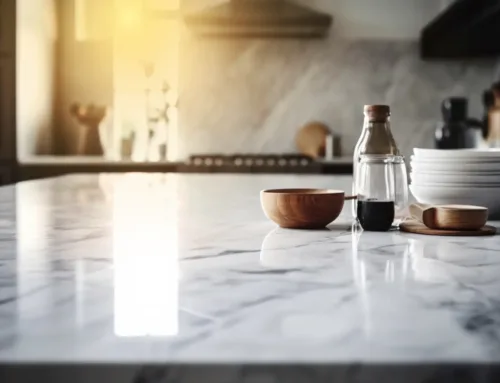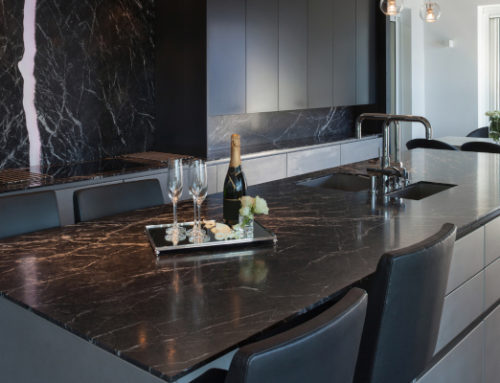When cold weather arrives, your stone countertops—especially marble, granite, and quartz—can react in ways that impact both their beauty and longevity. Understanding how temperature swings affect stone surfaces is essential for homeowners searching for “marble countertops near me” and wanting to protect their investment.
How Cold Weather Impacts Stone Countertops
1. Contraction and Expansion
- Stone countertops contract in freezing temperatures and expand in heat. This natural movement is usually minor, but repeated cycles can lead to hairline cracks, especially in areas already worn or exposed to moisture.
- Granite is durable but can develop minor cracks if water seeps in and freezes. Its porous nature makes it susceptible to water absorption, which is why sealing is crucial.
- Marble is even more porous than granite, making it more vulnerable to cracking or surface chipping (spalling) when water freezes inside the stone. This is a key consideration for anyone searching for “marble countertops near me” in colder climates.
- Quartz is less porous and more resistant to moisture, but it can still contract in cold weather, potentially stressing seams and causing separation over time.
2. Thermal Shock
- Sudden temperature changes—such as placing a hot pan on a cold countertop or pouring boiling water on a cold surface—can cause thermal shock, leading to cracks or even shattering, particularly in granite and quartz.
- Keeping your home at a consistent temperature and avoiding abrupt temperature changes on your countertops helps prevent this issue.
3. Moisture and Freeze-Thaw Damage
- Ice and snow can accumulate on outdoor countertops. When this moisture seeps into the stone and refreezes, it expands, causing cracks and chips, especially in marble and granite.
- Even though quartz is non-porous, condensation or spills left on the surface during winter can weaken adhesives and seams over time.
What to Do Now: Protecting Your Stone Countertops
Seal Regularly
- Granite and marble countertops should be sealed at least once a year—more often if exposed to harsh conditions—to prevent moisture absorption and freeze-thaw damage.
- For those searching “marble countertops near me,” ask your installer about the best sealant and maintenance schedule for your local climate.
Clean and Dry Surfaces Promptly
- Wipe up spills immediately, especially in winter, to prevent moisture from seeping into the stone or under seams.
- Remove snow and ice from outdoor countertops as soon as possible.
Avoid Extreme Temperature Changes
- Do not place hot pots or pans directly on cold stone surfaces.
- Use trivets and hot pads to protect your countertops from sudden heat exposure.
Cover Outdoor Countertops
- Use protective covers during the winter months to shield your countertops from snow, ice, and temperature extremes.
Maintain Consistent Indoor Temperatures
- Keep your home at a steady temperature to minimize contraction and expansion cycles, especially for quartz countertops.
Why Proper Care Matters
Stone countertops are a long-term investment in your home’s beauty and value. By understanding how cold weather affects materials like marble, granite, and quartz, and by following these care tips, you can keep your surfaces looking pristine for years to come.
If you’re searching for “marble countertops near me” or need expert advice on maintaining your stone surfaces, contact CT Hard Rock LLC. Our team provides tailored solutions to ensure your countertops withstand every season—beautifully and reliably.
CT Hard Rock LLC—Your trusted partner for marble, granite, and quartz countertops in every climate.





